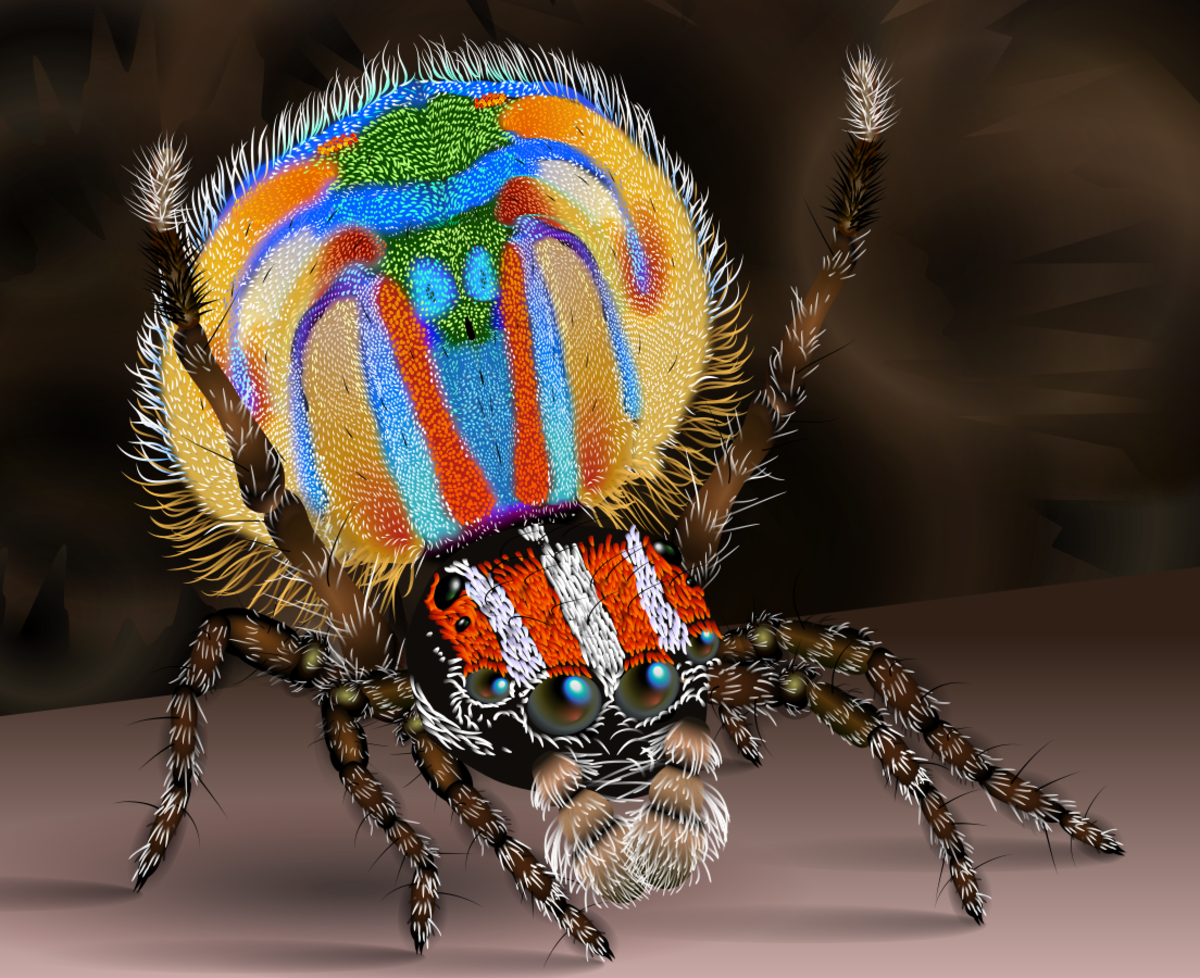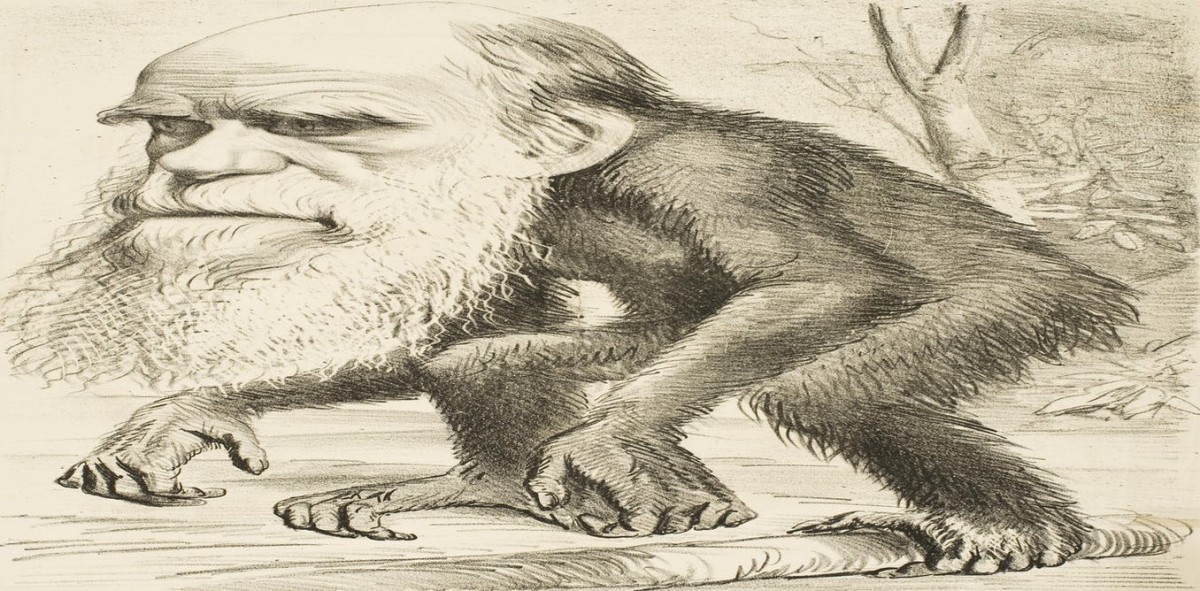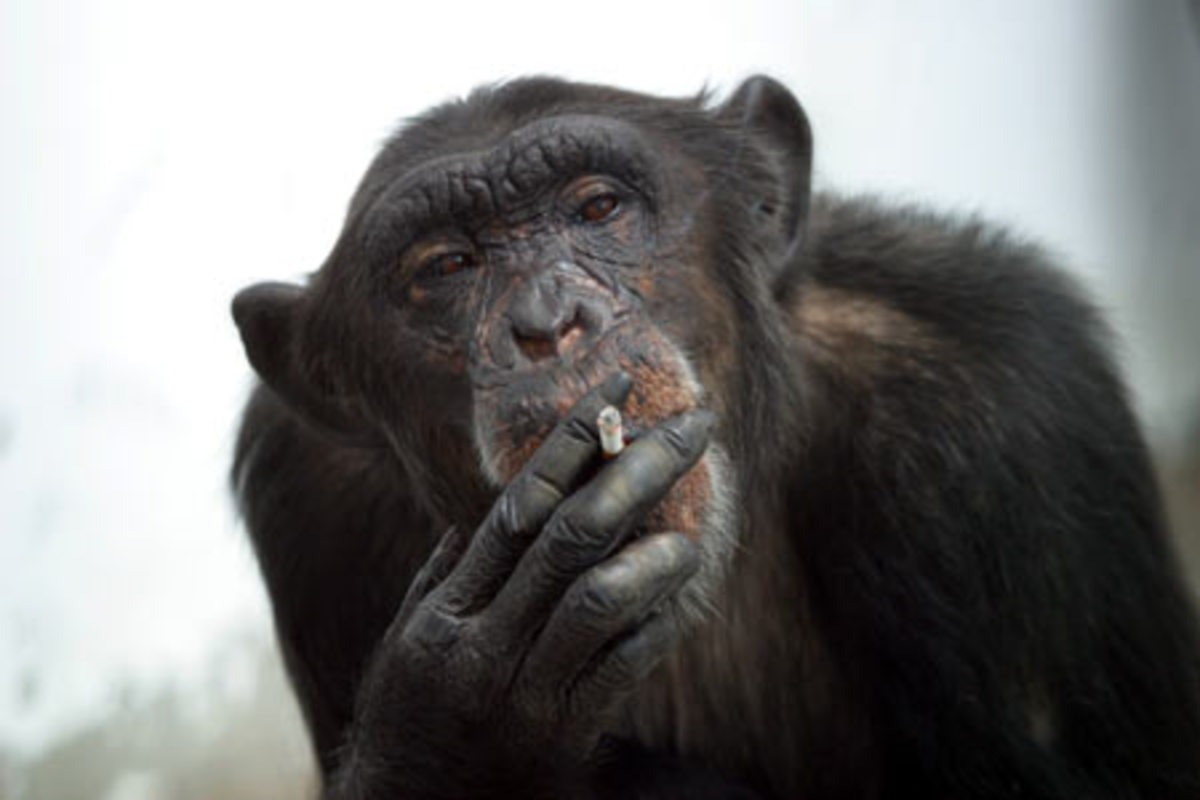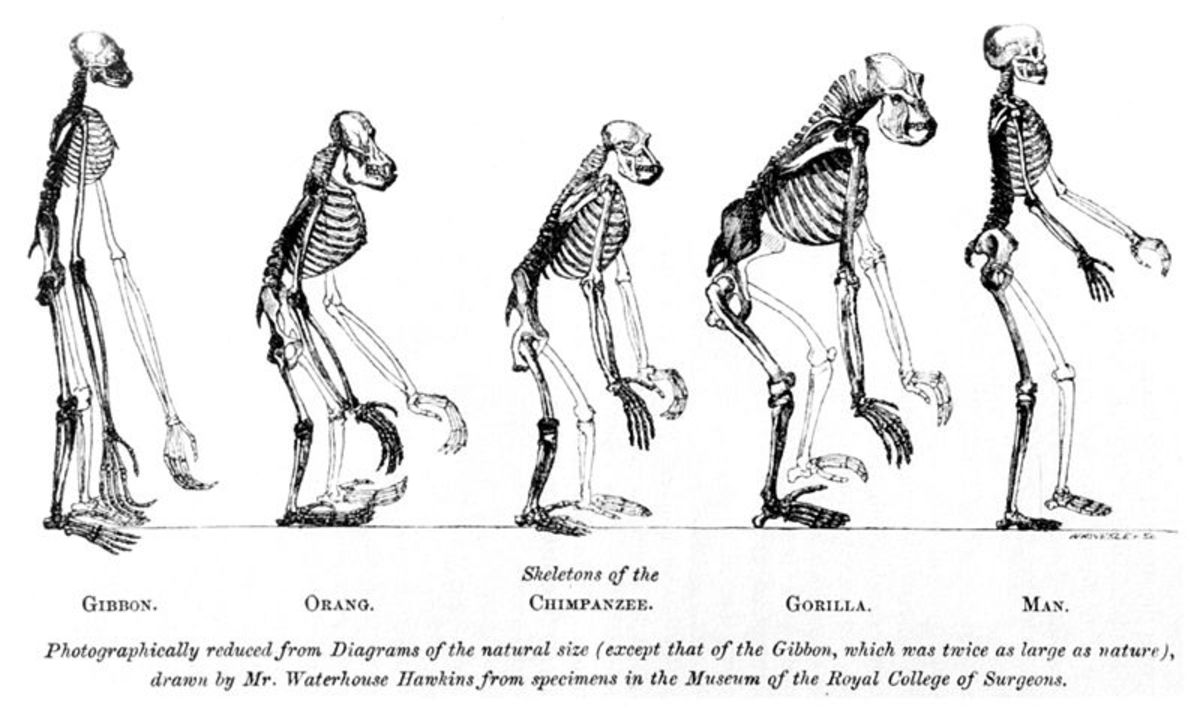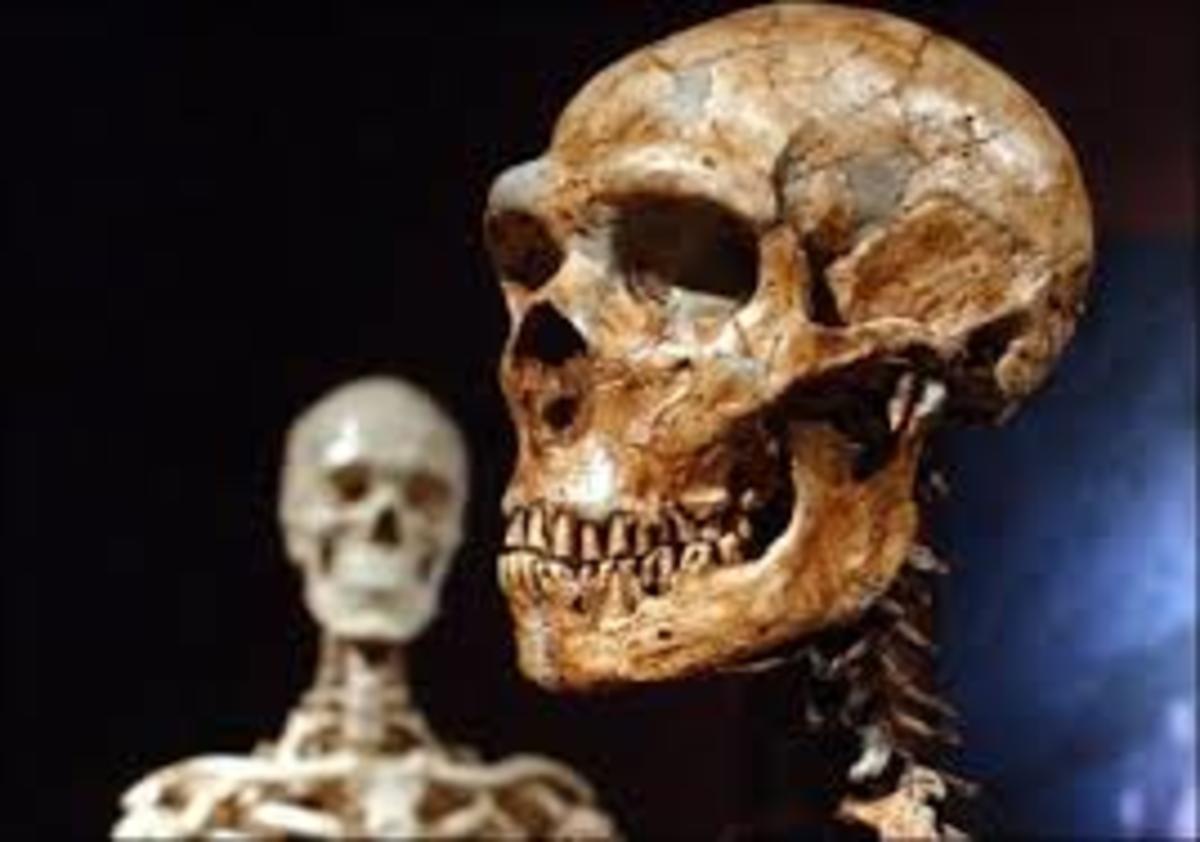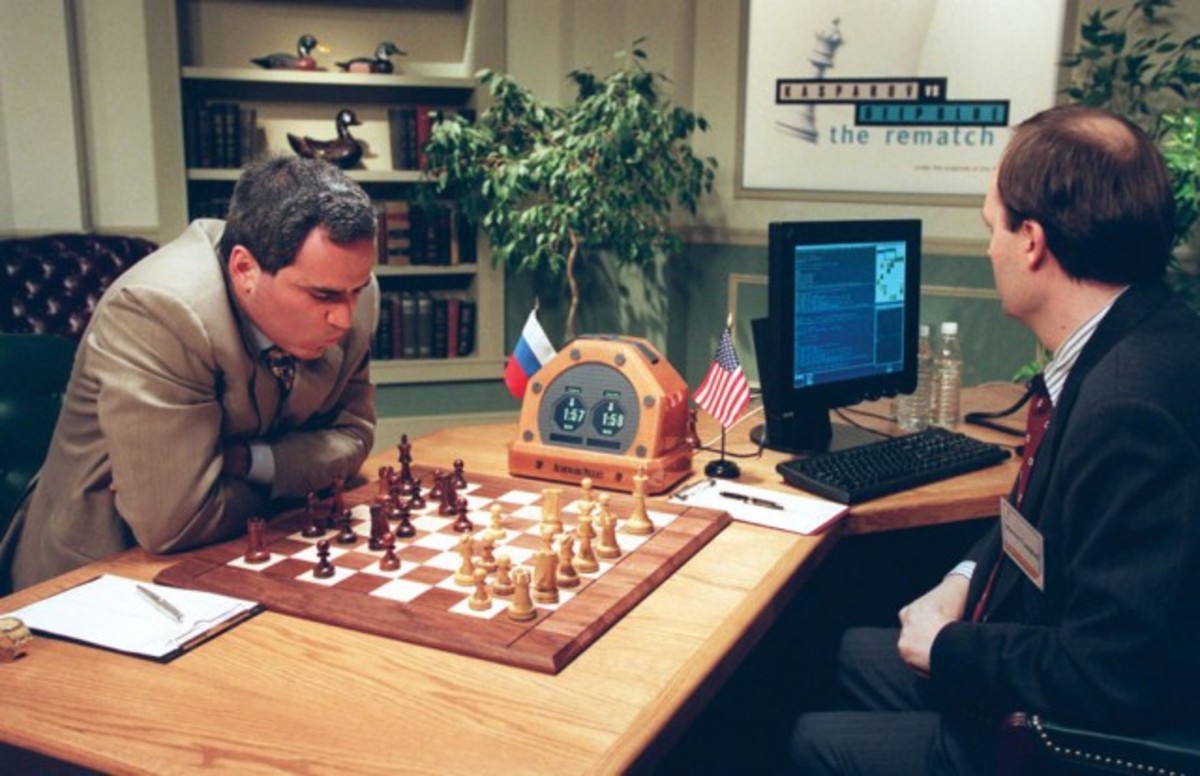The missing piece in the theory of evolution
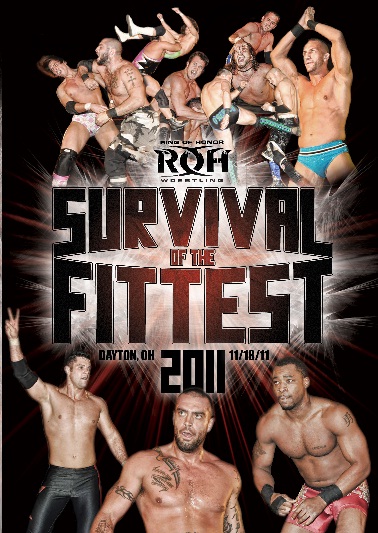
Evolution's 'missing link'
In the current theory of evolution there's an "elephant in the room," which is hardly, if ever discussed; the role of the female in shaping us as humans. Whenever evolution is written about, there's generally a hidden bias, because it's always looked at from a male point of view
When people talk about ideas like, "the survival of the fittest", it's mostly couched in terms of dominant males, who are better able to pass on their genes to the next generation because they are stronger, more adaptable or more intelligent than other males. Far less is written about the female role in evolution
What's shocking about this one-sided approach is that our total dependence on females is ignored. They are far, far more important to the survival of any species than the male. Females either lay eggs or give birth to live young, then devote their energies to caring for them until they are able to look after themselves. If the females of any species fail to successfully nurture their young, so that they die before they are able to breed, the species will rapidly become extinct
It's true that there are some male birds or fish who take a very active role in caring for the young, but this is hardly ever the case with mammals. Often, the only part a male plays is fertilising the female. In the case of some animals, like bears, lions and tigers, the males have been known to kill and eat cubs, especially if they have been fathered by another male. The behaviour of these males is actually harming the species' ability to survive
In most mammals, the males are expendable. One male can fertilise large numbers of females. Even if most die, breeding will continue as long as there are adequate numbers of females. It's a completely different story in reverse. Lose most of your females and the species will be in trouble - perhaps not so much in small mammals like mice, cats or rabbits, where females give birth to litters, and do this more than once a year, but certainly in larger animals who only give birth to one young every year or so. This is why larger animals are far more likely to become extinct than smaller ones. Females are absolutely crucial to evolution, much more so than males, but you wouldn't think so if you read most books on the subject.
It's doubtful whether fierce competition between males was a big factor in human evolution, as many male scientists claim. Mammals like stags, bulls and rams fight each other every spring to get access to females and have developed fearsome weapons like antlers and horns to wound their rivals. Only the strongest and most aggressive males get to breed. This clearly didn't happen with human beings, since the human male is one of the most physically weak animals of its size. Apes like the orang-utan, chimpanzee and gorilla, all of whom are our close relations, are four times stronger than humans. Human males fighting with each other in trials of strength, couldn't have been an important factor in human evolution or we would see its results.
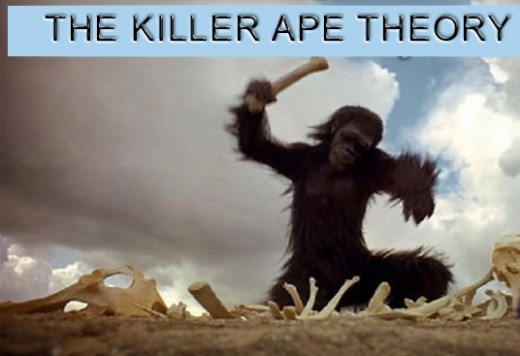
The Killer Ape theory
Because of the strong male bias in the way we look at evolution, those theories which place males at the center of the picture are held to be true. In the 20th century, palaeontologists decided that man evolved from ape to human on the African Savannah.
For this reason, naturally enough, it was called the Savannah theory. Women are hardly mentioned at all. It's posited that apes came down from the trees to live on the African plains and learned how to hunt animals to survive. Through traits developed to increase his hunting skills, man evolved from an ape to a human. He changed from being a plant eater to a top carnivore or 'killer ape', entirely through the efforts of males
Much of what was proposed in the Savannah theory has been disproved, but male scientists still cling to it, desperately trying to make it work. At the same time they reject a far more plausible explanation of human evolution called the Aquatic Ape theory. It covers everything about how we evolved from apes, because it says why we walk upright, why we have no fur and why we have a larger brain than any other ape. All this happened when apes came down from the trees and foraged for marine food in the shallows of swamps, lakes, rivers and the sea
They became upright waders in the waters, lost their heavy fur because it was a hindrance in the water and developed bigger brains because of the enhanced richness of marine food. Male scientists don't like this theory, because men don't play a leading heroic role within it. If you are foraging in the water for food, which is what women can do very well, there's not much room for hunting, which is generally a male pastime
Perhaps it is natural for male scientists to see evolution from a completely masculine point of view. Does this matter? Well it does, because it shapes how we see the world we live in, our gender roles, how we treat each other and even our politics
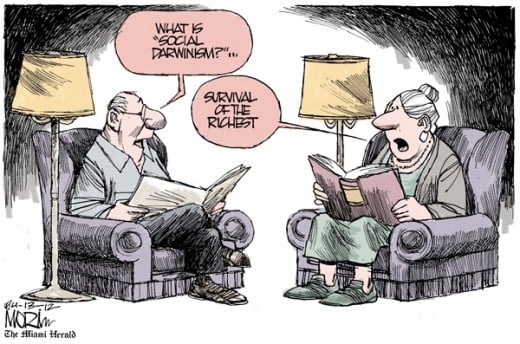
Adolf Hitler

Social Darwinism
ÏNot long after Darwin published 'The Origin Of Species', people began to wonder how evolutionary theory affects our present- day world. It was from these musings that Social Darwinism was created, which sees the concept of the "survival of the fittest" in terms of competition, conflict and sometimes violence.
It provided a strong justification for laissez-faire capitalism, eugenics, scientific racism, imperialism, fascism, Nazism and warfare. After the defeat of the Nazis in World War Two, Social Darwinism became discredited because it had been used by the Nazis to justify the genocide of the Jews, Slavs, homosexuals and Gypsies. These people were not seen as 'fit' to survive and therefore could be eliminated. In spite of this, it keeps on going, except it is no longer called Social Darwinism, Fascism or Nazism. It has other names now.
Many right-wing politicians in Western countries call for something called, "rolling back the state". This involves cutting back on social welfare spending of any kind, but they don't really say why we need to do this when it's clear that the most vulnerable members of our society would suffer. The answer can be seen in the writings of Darwin himself in his book "The Descent of Man", when he says. –
Thus the weak members of civilized societies propagate their kind. No one who has attended to the breeding of domestic animals will doubt that this must be highly injurious to the race of man. It is surprising how soon a want of care, or care wrongly directed, leads to the degeneration of a domestic race; but excepting in the case of man himself, hardly any one is so ignorant as to allow his worst animals to breed.
Ayn Rand

Survival of the Fittest
Anyone agreeing with these sentiments would certainly feel that the welfare state, with social housing, free medical care, disability benefits and unemployment pay is harmful to the genetic future of mankind. It's not much of a jump to then claim that it is better if people who are sick, disabled or poor, die of neglect and starvation, rather than allowing their 'unfit' genes to be passed onto the next generation.
Another small jump and you can make a strong case for genocide, ethnic-cleansing and eugenics. People who are judged as unfit should be exterminated, rather than waiting for them to starve to death. You could even argue it is the kindest thing to do, in the same way humans 'put to sleep' injured animals. This allows the human race to evolve without hindrance.. In recent times this brand of Social Darwinism has been called 'Objectivism', a name invented by the writer Ayn Rand. Her ideas justify greed and selfishness, as well as the large gap between rich and poor, in the name of evolution.
But is the "survival of the fittest" really all about aggression and ruthless competition? In 1902 Peter Kropotkin wrote a book called "Mutual Aid: A Factor of Evolution", arguing that co-operation between humans is the single most important factor in our evolutionary success. Unfortunately, his ideas never caught on. One reason might be that evolution is mostly seen from the masculine point of view, which celebrates competition above all else . We ignore the nurturing, feminine, inclusive traits of our species, which have been just as, if not more important than the contribution of combative males
The most important factor in the survival of any species of animal is not how big, strong or aggressive the males are, but the nurturing skills of the mothers. It's even more important in humans because it can take from 15 to 20 years for a child to fully mature. A human baby is one of the most helpless infants on the planet. It can't even crawl for the first few months of its life and it can take over a year to learn to walk. In contrast, many animals on the African Savannah have to be able to run within an hour of being born if they are to survive. A human mother in Neolithic times, say, had to have a very strong and lasting commitment to the welfare of her children for the survival of the human species
The maternal instinct
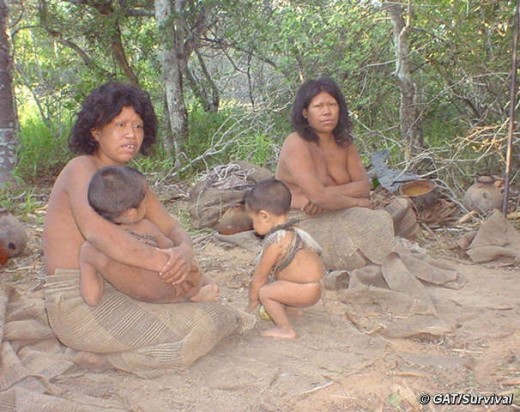
Nurturing Mothers
Male scientists largely ignore this fact because they are focused on what males are doing and how that impacts on our capacity to survive. They like to claim that the males protected and fed the females back in those times.
It may be true, but if we look at the behaviour of many men today, there's room for doubt. Plenty of young men abandon their female partners and their small children.
In many cases, husbands drink or gamble away the family's money, leaving their wives and children destitute. The paternal instinct in human males is often not very strong. This shouldn't be a surprise to us, because the concept of 'fatherhood' is a fairly recent one, invented along with marriage and the restriction of female sexuality, to protect a male's property from falling into the hands of children who are not his own. It had very little influence in our evolution
Back in the Stone Age, we may have had pair-bonding and a certain amount of support from males, but generally, women had to rely on each other for help in rearing and feeding their children and not on individual males. Had child- care been left to males, the human race would probably have become extinct long ago. Their priorities were different from that of females and it's still true today. Most male politicians and businessmen tend to see child welfare and care as a very low priority indeed, even though the next generation is as crucial as ever in ensuring our survival as a species.
If we admit the important role of intelligent, dedicated, nurturing mothers in evolution, the ideas of Social Darwinism on war and poverty become unacceptable. It goes against the nurturing and caring instincts of women to have their sons killed by the thousand in wars or to have their children die in poverty. Given a free choice, which in most of the world they don't have, women would opt for a society in which the effort they have made to rear their children does not go to waste.
Nuclear war

The survival of the human race
Human society has come close to committing global suicide through nuclear warfare .It may be committing slow suicide by allowing greenhouse gases to wreck our environment.
If we accept that the main reason for our survival is the powerful maternal instincts of mothers, then it makes sense to eliminate war and poverty, give people decent housing and free medical care and allow women to limit the size of their families.
The human race has successfully survived so far because of the way mothers care for their children and in spite of male desires to fight, kill and generally destroy their fellow humans in ever more inventive ways.
Unfortunately, in our male- dominated world, the maternal instincts of mothers are greatly undervalued and even treated with disdain. Men see the caring side of women as a weakness. And perhaps it is, if all you want to do is grab power and wealth in our patriarchal society. However, the end result is that we have ruthless, aggressive and sometimes violent men ruling our world, who think nothing of starting a war with another country. With modern weapons technology, this is becoming an increasingly dangerous thing to do.
We also see a big increase in the gap between rich and poor, which can lead to an unstable world of violent revolution and extremist political parties rearing their ugly heads. In the early 20th century, social unrest threw up extreme ideologies like communism, fascism and Nazism. It could easily happen again. Nuclear weapons and other weapons of mass destruction might get into the hands of insane dictators or terrorist groups who care very little if at all about the welfare of anyone but themselves
Our survival does not, and never has, depended on men being strong, brutal and ruthless, however much they tell themselves it's true. It is a result of the many-faceted nurturing skills of intelligent mothers. For our continued survival, it's important to have such women in positions of power, ruling our world. We do not have to live in a world of conflict, war, genocide and grinding poverty. Instead, we can live in a caring and loving world, ruled by maternal and nurturing women.
- Women Are Smarter Than Men - Science News - redOrbit
Here’s another study for the “obvious” file: Women are smarter than men. As you reach for this file (which by now should be located in an easy-to-reach spot on your desk) you’ll likely notice several other stories bearing the same headline.
- Matriarchy FAQs
Questions and answers about matriarchy
© 2013 William Bond

